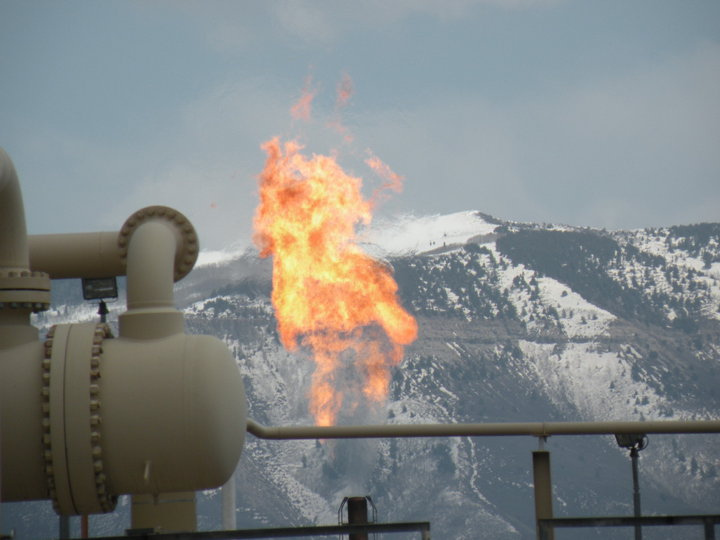Search Results for Tag: US
Fracking: A story of success? (Part 1)
FRACKING or HYDRAULIC FRACTURING – a sought-after gas development method appears to be on the brink to capture the globe.
With a multiple blog series Global Ideas wants to bring a complex issue into focus: How did it come to this development, will fracking play an important and necessary key role in the future of the global energy supply and can it be taken seriously in an ecological context?
But first of all: why is natural gas “fracked” and what exactly does that mean?
Natural gas is one of the main energy resources worldwide. It had barely a one-quarter share in the global energy supply mix after oil and coal in 2011. The fossil fuel energy source provides primarily heating and electricity.
Conventional natural gas – consisting primarily of methane – occurs under the earth in coal beds and is stranded and extracted in natural gas fields. It is mostly transported through huge pipelines or via tankers and trucks from the delivering country to the importing country which is buying and consuming it. Natural gas is on the one hand often considered to be the cleanest burning fossil fuel energy, producing less carbon dioxide then either coal or oil. But critics like Tom Wigley, researcher at the US National Center for Atmospheric Research are saying it’s the opposite, if you consider the methane leaks of natural gas production amongst other aspects.
Noneetheless, it is important to make a difference between conventional gas, which can be produced more easily as it naturally occurs in gas or oil fields, and unconventional gas (“shale gas”), which is trapped underground by impermeable shale rocks and needs to be isolated from the shale. The production methods are different and so are the effects on climate. We will examine more in detail later on to which degree and extend.
Fracking describes the whole process of delivering and bringing the unconventional gas to the earth’s surface: artificial flaws are busted into the deep-lying layers so the gas can escape and different chemicals are used to keep the korridors open.
Have a look here how it works:
This method isn’t new anymore but thanks to an advanced technique higher profiled then ever before.
Due to the new technology shale gas and a part of some oil deposits can be accessed. Therefore fracking is often described as promising solution to overcome global energy crisis:
As a job procurement source, an alleged carbon dioxide reducer and a guarantee for a larger energy self-sufficiency fracking could become the redemption for several countries with significant shale gas occurrence.
There are different motivations, needs and ambitions associated with hydraulic fracturing depending on a country’s geopolitical position, as well as diverse attitudes on resolving energy crisis. A concise and vigorous statement about the benefits of natural gas and fracking comes from Aubrey McClendonin, chief executive officer of the gas and oil compnany Chesapeake Energy, the second biggest producer of gas in the USA:
“We’re going to be able to say in the next 10 years, ‘To hell with OPEC‘ “
Blatant high hopes for fracking as it appears –
Get an overview in the upcoming 2nd part of our Blog Series: Fracking Worldwide: Which countries are fracking, which are about to frack and why is hydraulic fracturing banned temporarely in others?
Author: Julian Claudi
Editor: Klaus Esterluß
Round Table of Climate Talks in Berlin

The latest round of climate talks has just kicked off in Berlin today, and it’s expected to lay the groundwork for the UN summit in Durban, South Africa at the end of the year. Around 35 countries are attending the meetings in Berlin, and the hope is that world leaders can set the course to some sort of binding climate agreement by the end of the year.
But US and European officials have already admitted that won’t be possible this year. While everyone believes a legally-binding plan is crucial, nobody can agree on what it should look like.
What do you think of international climate talks? Are they making good progress, or should world leaders be doing more?









Feedback